Summary: Best Nootropics for Motivation
Feeling unmotivated? It happens — especially when you’ve lost momentum in your workplace, your workouts, or whatever it is that you’re wishing you had the motivation to do. While nootropics aren’t exactly the quick-fix solution you’re looking for, they can help lift the cognitive barriers standing in the way of your productivity momentum. L-tyrosine, L-theanine + caffeine, Rhodiola rosea, B-vitamins, citicoline, phenylpiracetam — by elevating your mood and energy levels, these cognitive enhancers may go a long way in helping you get motivated and, more importantly, stay motivated.
Newton’s First Law of Motion: an object at rest stays and an object in motion stays in motion with the same speed in the same direction unless acted upon by an external force. With that in mind, consider this article on the Best Nootropics for Motivation as the external force to get you, the object, in motion.
That’s right — I am literally objectifying you, baby.
While, yes, I understand that citing Newton’s first law of motion is very much a cliché within the “Get Motivated!” circles of the internet, I think it’s a cliché for a good reason: if we take Newton’s law as the actual-factual truth, then there’s a lot of truth to the well-known dictum that the best way to start is to start. Because once you start, you’re an object in motion — and that’s better than stagnantly sulking at ground zero.
So, let’s get started!
Or click here to skip down to my selections for the best nootropics for motivation.
Page Contents
The Ultimate Guide on Motivation: Boost Your Dopamine & Mood Levels
Can nootropics enhance motivation? Of course, what kind of question is that??
It’s an interesting concept, especially if you’re familiar with the differences between intrinsic motivation and extrinsic motivation:
- Intrinsic Motivation relates to behavior driven by internal rewards;
- Extrinsic Motivation relates to behavior driven by external rewards.
Related:
Best Nootropic Bars: Effective, Convenient Brain Food
Yet, nootropics are external substances (or “rewards”) that bolster your internal reward systems. Although, technically, I think by definition this means that nootropics are extrinsic motivators, that you are intrinsically motivated enough to get motivated by nootropics makes the whole idea of intrinsic vs. extrinsic motivation fold on itself here. Perhaps it’s best we leave this aspect of motivation alone, let the psychologists and philosophers chew on that one while we get on with topic at hand: how do nootropics enhance motivation?
Nootropics can enhance motivation in many ways: by boosting brain energy, by reducing stress, by relieving anxiety. But the two main bio-pathways that nootropics take to enhance motivation include:
The Dopamine Pathway
Catecholamines, such as dopamine and norepinephrine, play a key role in sustaining mood and attention, including the reward-seeking feelings related to pleasure. While I think that, to an extent, the central importance of dopamine to motivation is a bit overstated — and has been ever since Adler and Jung poked holes at Freud’s theory that all human motivation grounds down to seeking pleasure and escaping pain — the research is undeniable: those with higher dopamine levels get shit done.
Another way to put it: intrinsic motivation, that is to say “self-motivation,” is linked to dopamine. And catecholaminergic nootropics may improve intrinsic motivation via the dopaminergic pathway by:
- Supplying raw catecholamine precursor to synthesize catecholamines;
- Assisting with catecholamine syntheses as conversion co-factors;
- Enhancing neurotransmission strength by sharpening catecholamine receptors;
- Promoting catecholamine release via stim and stim-free bio-pathways.
And more — through various direct and indirect bio-pathways.
The Glutamate Pathway
Okay, so this still relates to dopamine, but it’s interesting nonetheless. A study in 2014 observed that activating glutamate receptors in the dorsal raphe nucleus region of the brain (don’t worry about it, just keep reading) triggers dopamine-related neuron activity. Whereby glutamate receptors are typically associated with neuron-to-neuron communication, memory consolidation, and learning, there seems to be overlap between this glutaminergic system and the dopamine pleasure-reward system.
This means that, in addition to the aforementioned dopaminergic bio-pathways, nootropics may also enhance motivation by optimizing neurotransmitter glutamate activity.
A Semi-Brief Thought on Fear and Addiction

When confronted by a dragon (as one often does), fear kicks in, triggering the body’s Fight-or-Flight stress response system. While in this mode, the stress response redirects the mind to stop anxiously worrying over a million different things (bills, taxes, does she like me??, etc.) and to begin worrying about, or focusing on, one thing: the dragon threatening your life.
In other words, there’s an anxiolytic (anti-anxiety) component to fear. Because instead of worrying over a million things, you’re now only worrying over one.
An understated aspect of addiction and addictive substances is how many of them stimulate (and simulate) the stress response, inducing a physiological state of fight-or-flight stress without the life-threatening stressors otherwise required to induce such focus-sharpening fear.
Whatever scares you the most signifies what’s most important to you. Go in that direction.
Your dream is to be a stand-up comedian, yet the idea of getting on stage turns your stomach upside down. You love and adore your kids more than anything in the world, yet you deeply fear that you’re screwing them up by simply being a flawed human (like the rest of us). If it scares you enough, that means it’s important. It’s a core “do-or-die” factor in your life, a terrifying, dragon-like threat that will eat you if you don’t kill it first. And you can either use that fear to help you focus and work on what’s most important to you or you can simulate a cheap substitute of the experience with a fear-inducing substance or activity, like taking drugs all day or playing video games all night.
Soberly diving into what scares you the most will inevitably strengthen you enough to take on the million other little things bothering you, whereas the alternate route — the route that falsely triggers your fear response — will only temporarily distract you from those million little things long enough for a million more things to pile up on top of them. And the cycle continues, feeding itself like a dragon eating its tail.
What’s the Difference: Motivation vs. Willpower?
Truth be told, I’m more of a willpower guy and than a motivation guy. And, yes, I do (perhaps annoyingly) believe there’s a drastic enough difference between them to warrant considering the two separately. Think about it:
- With motivation, you don’t need willpower to power through a task;
- Without motivation, all you have is willpower to power through a task.
Motivation can be finnicky, even for those who (like me) wake up everyday to their dream job. Not everyone wakes up every single day motivated to work their dream job, to work out, to read those books you’ve really, really been wanting to read. Even a dream job requires work, and, by definition, work is work. It’s the opposite of comfort, which is what our body’s default setting craves.
As such, what distinguishes the successful from the struggling isn’t motivation but willpower. And, more often than not, it requires willpower in the first place to see a task through, to realize the rewards of completing a task, which in turn helps you stay motivated to complete the task again — but explicitly experiencing the reward is motivating.
Motivation is unpredictable and unreliable, yet willpower is a firm, stable baseline that you can strengthen over time.

Even so, this doesn’t mean that motivation isn’t important, or that there are no benefits to feeling motivated (obviously). Because willpower is something that needs to be gradually built up by committing to daily habits and mini-habits, this means that we don’t start off with loads of willpower. Likewise, because willpower is steady, it’s more difficult to boost with nootropics by any reasonable measure. (Although, there is a link to willpower with glucose, but I’ll cover that in another article.)
However, motivation can be improved by supplementing nootropics. And so, if you’re feeling unmotivated and you feel your willpower capacity is low, you may ease the workload demands on your willpower by boosting your motivation with nootropics. And that’s pretty nifty — in fact, I’m 100% confident it’s the niftiest thing you’ll hear all day.
List of the Best Nootropics for Motivation of 2024
Everyone has their own “Get Pumped” music playlists and motivational pre-game rituals, and so on, but only certain nootropics work for improving motivation (and other measures of cognitive performance). Here are a few of the best nootropics for motivation. Enjoy!
#1) L-Tyrosine

No doubt, one of the biggest motivation killers is stress. If only we could relax, we might get something done today. And, ironically, if we fail to have a productive day, the stress only gets worse. By replenishing mood- and motivation-related neurochemicals, which otherwise deplete under stressful conditions, L-tyrosine helps you maintain enough mental composure to conquer stress and stay cognitively primed and productive.
#2) Caffeine + L-Theanine

Here’s a two-fer entry: caffeine + L-theanine is one of the most popular combos for both nootropic noobies and nootropic veterans (and us nootropic geek super-veterans, as well).
In this space, this digital community of neurohacking geniuses, not everyone is into caffeine. Due to its stimulatory side effects, caffeine doesn’t exactly qualify as a bona fide nootropic. Rather it’s a stimulant with cognitive enhancing advantages when used properly, as well as cognitive impairing disadvantages when taken at excessive dosages (and many supplements do supply way too much caffeine than what’s necessary).
However, by pairing the familiar focus- and energy-boosting effects of caffeine with L-theanine, an anxiolytic amino acid sourced from Camellia sinensis leaves (e.g., green tea), at a 2:1 ratio of L-theanine (2) to caffeine (1), you may enjoy the cognitive enhancing advantages of caffeine while mitigating its jittery side effects. This is great for boosting mood and motivation while still maintaining a productive degree of calm composure.
#3) Rhodiola Rosea Extract
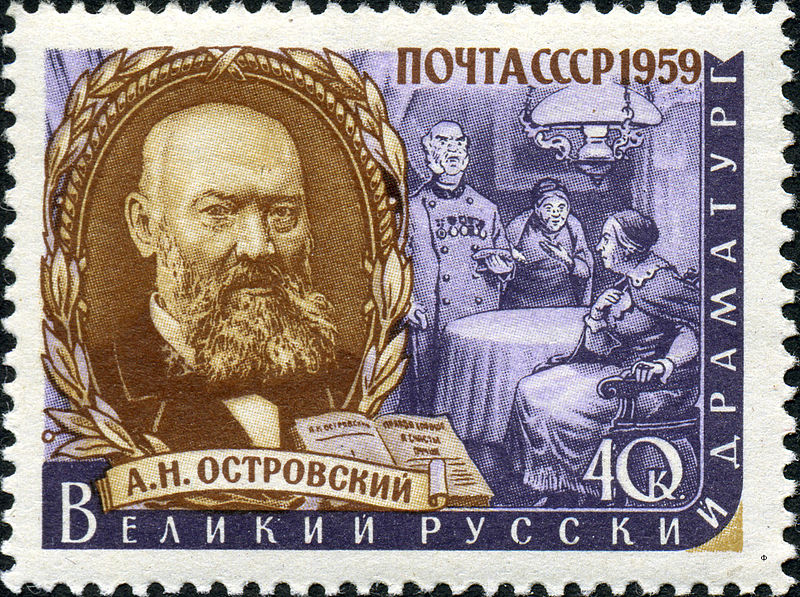
No wonder the Soviets kept this herb a secret during the Cold War: Rhodiola is an incredibly powerful plant full of fast-acting, bio-active compounds. Taken in the morning or afternoon, Rhodiola may work as a get-up-and-go nootropic or as a late-afternoon pick-me-up. It’s a great, natural nootropic to help push you towards putting in one more hour at work, one more set in the gym, and so on.
Personally, I take Rhodiola both in the morning and afternoon. I love this stuff.
Read my Rhodiola Rosea Review.
#4) B Vitamins

Of all the vitamins and minerals found in, say, a multivitamin, B vitamins are unique in that they’re taken both as a health supplement and as an acute performance enhancer. After all, even energy drinks load up on these micronutrients: B vitamins make you feel good aaand they’re good for you!
Not that energy drinks necessarily care about the “good for you” part. But, even so, B vitamins are great for mood and motivation due to their co-participation in the syntheses of dopaminergic and serotonergic neurochemicals. Paired with L-tyrosine, B vitamins may significantly improve your daily cognitive performance, as well as reduce the post-energy crash that comes with consuming caffeine.
#5) Citicoline (CDP Choline)
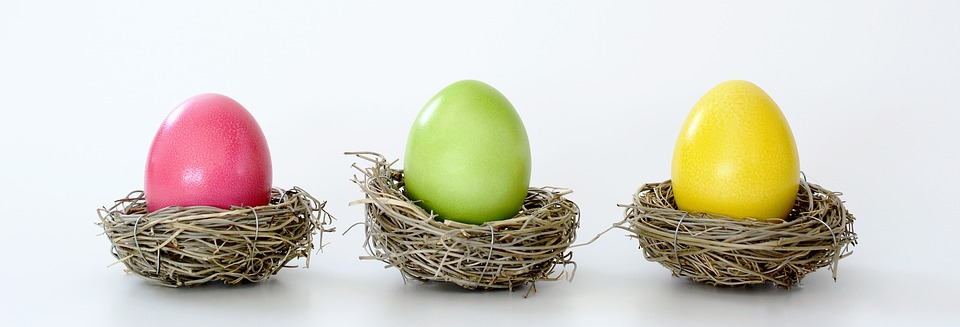
One reason why people love eggs: they supply choline. However, as an egg fan, I hate to say this: citicoline is an even better source of choline.
Even so, this doesn’t have to be an either/or thing — you can have both your eggs and your citicoline. Likewise, for those who enjoy the cognitive benefits of the nootropic uridine, citicoline allows you to enjoy both the benefits of choline and uridine by supplying:
- Choline: the precursor compound used to synthesize phosphatidylcholine, a phospholipid involved in the cell membrane bilayer, and acetylcholine, a neurotransmitter associated with memory and learning;
- Cytidine: the precursor to uridine, a nucleoside associated with improved brain energy and synaptic plasticity — i.e., neuron growth and development.
Though not necessarily directly involved in the dopaminergic pathway, citicoline is an awesome daily nootropic for optimizing brain energy levels via non-stimulatory pathways. This brain booster boosts brainpower in several ways, resulting in a well-charged brain to better withstand the stressful, fatigue-inducing detriments that would otherwise derail your mood and motivation.
#6) Phenylpiracetam
Here’s an interesting one: phenylpiracetam is one of the more unique racetam nootropics. Due to the -phenyl attachment to this racetam’s chemical structure, phenylpiracetam is way more potent than piracetam, the most basic of the racetams. With this increase in potency comes an acute boost of “psychostimulatory” brain activity that, unlike other stimulants, doesn’t exactly get your heart racing, however it does propel your brainpower in a way that truly enhances cognitive performance and composure.
Of course, due to the increase in potency, phenylpiracetam is restricted by the World Anti-Doping Agency (WADA) as a banned substance. So, this isn’t exactly a natural and legal motivation enhancer. But, for recreational use, I’ve found the occasional phenylpiracetam serving to be effective at getting my mind churning when I’ve otherwise felt too sluggish and slow-thinking to move forward.
Take note: it’s best to stack phenylpiracetam with a choline source, such as citicoline, to reduce the risk of side effect that comes with phenylpiracetam’s increased demands on the brain’s cholinergic system.
What About Modafinil and Other Smart Drugs?
Speaking of phenylpiracetam, what about modafinil and other smart drugs? Isn’t modafinil one of the best cognitive enhancers for motivation?
Here’s my thing with modafinil: yes, this drug can be a powerful tool to boost motivation, if used correctly. However, like Tim Ferriss, I don’t believe there’s ever a “biological free lunch” with these things, as Ferriss put it on a Joe Rogan Experience podcast episode, I believe. Even worse, I’ll take it further than Ferriss and say that modafinil’s actually not great for sustaining long-term performance and productivity — it’s an illusory boost on cognitive performance, the illusion simply sustained by how good you temporarily feel on this stuff.
Personally, I’ve burnt out on this stuff. You simply don’t get enough sleep with modafinil, you feel robotic towards the second half of the day, and, eventually, even though you’re keyed up, your thought processes feel less like they’re coming from you and more that they’re coming from some AI-generated creative process. Which sounds interesting in a sci-fi, Philip K. Dick sort of way, but it’s not something I’d recommend, based on personal experience, as a long-term strategy for boosting motivation and productivity. Read more on Modafinil/Adrafinil.
Stack Nootropics with MCT Oil for Better Brainpower Results
Admittedly, I’m late to the game here. Though I’ve long studied the benefits of taking MCT oil, and though I have occasionally ordered coffee with coconut oil and the works (the “bulletproof” coffee, if you will), I’ve yet to take the plunge into buying my own MCT oil for personal use, until I recently bought Performance Lab MCT.
I love this stuff. From a nootropic perspective, MCT oil makes sense: medium chain triglycerides (MCT) fuel the brain in the absence of glucose. For those committed to intermittent fasting or the keto diet, maintaining cognitive energy is a serious task — usually one’s commitment to such a diet strategy makes or breaks based on one’s alternative energy plan. And with MCT oil, that task becomes much less difficult, as this MCTs not only convert to ketones, which uniquely fuel the brain with fat-sourced energy, but they promote brain mitochondrial energy production.
Likewise, MCT oil may also improve the bioavailability of fat-soluble nootropics, such as the fat-soluble bio-actives found in Lion’s Mane Mushroom or Bacopa Monnieri. Nothing derails motivation quicker than low energy and food cravings, and, with MCT oil, those problems cease to be problems. Adding MCT oil to my daily morning ritual has been a major game-changer for my day-to-day productivity.
Want some? Get the Best Deal on Performance Lab MCT here.
Read my Performance Lab MCT review here.
Final Thoughts
My Conclusion on the Best Nootropics for Motivation in 2024
To maintain ongoing self-control (or willpower) is a skill you can improve by turning mini-habits into habits. For example, do you really want to learn guitar, but you’re struggling to find the motivation to even pick the damn thing up? Start small: just pick the thing up and play at least one note everyday. If Newton’s correct, odds are your “in motion” momentum will move you towards increasingly playing more and more notes than intended, until eventually — voila — that tiny daily habit of playing only one note eventually sculpts you into a life-long rockstar.
Don’t fret over how small and insignificant that first step is. It’s a small place to start, but it is a start — and a little start is better than no start at all. And if you can exert enough self-control to make that tiny first step, you’ll find you have it in you to take an even bigger step the next day, and the next day — and so on.
You’ll find those little successes (e.g., playing one note) are much more motivating than the big imaginary failures (e.g., not being a rockstar) you’ve accumulated in your head. And with the right nootropics, you can exert your willpower on the cognitive systems underlying motivation itself, maintaining enough motivation and momentum to see those small successes grow and grow.
Read my Best Pre-Made Nootropic Supplements to Buy list here.
P.S. – Where to Find the Best Supplements for Motivation
Of course, you can buy and stack each nootropic individually. However, there are a few supplement stacks that have already done the grunt work for you, even supplying the best nootropics for motivation at their best, highest quality formats. With that in mind, I’ve listed here a few of the Best Nootropic Supplements for Motivation that you can either take alone or altogether to maximize your daily motivation levels. Check it:
Mind Lab Pro
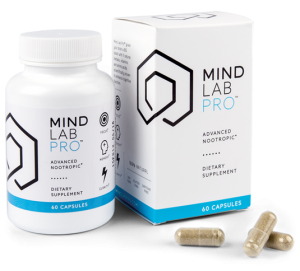 Mind Lab Pro isn’t only one of the best nootropics for motivation but it’s one of the best nootropic supplements period. With its stim-free formula, Mind Lab Pro tackles mood and motivation the clean way, with anxiolytic L-theanine’s alpha brainwave boosts and stress-relieving L-tyrosine’s catecholaminergic bio-mechanisms (paired with a B-vitamin complex of B6, B9, and B12) — and many more.
Mind Lab Pro isn’t only one of the best nootropics for motivation but it’s one of the best nootropic supplements period. With its stim-free formula, Mind Lab Pro tackles mood and motivation the clean way, with anxiolytic L-theanine’s alpha brainwave boosts and stress-relieving L-tyrosine’s catecholaminergic bio-mechanisms (paired with a B-vitamin complex of B6, B9, and B12) — and many more.
This is an awesome one-and-done nootropic stack that you can take daily to improve all short- and long-term mental performance, or you can stack this supplement with other nootropics to further improve their brain boosting results — e.g., Mind Lab Pro’s citicoline with phenylpiracetam, L-theanine with caffeine, all ingredients with MCT oil, etc.
Want some? Get the Best Deal on Mind Lab Pro here.
Performance Lab Caffeine+
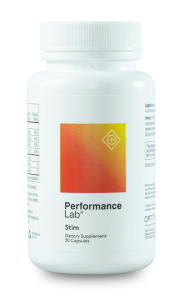 Though I’m particular to the stim-free nootropic stacks, having an optional stim add-on is incredibly value, especially when it’s formulated like Performance Lab Caffeine+‘s nootropic-enhanced caffeine pill formula. When it comes to caffeine pills, Stim does it right by supplying a modest dose of caffeine per pill (50 mg), allowing you to better customize the caffeine amount per serving — one pill? two pills? three?? — while also minimizing the negative consequences of caffeine with Stim’s L-theanine, L-tyrosine, and B-vitamin complex.
Though I’m particular to the stim-free nootropic stacks, having an optional stim add-on is incredibly value, especially when it’s formulated like Performance Lab Caffeine+‘s nootropic-enhanced caffeine pill formula. When it comes to caffeine pills, Stim does it right by supplying a modest dose of caffeine per pill (50 mg), allowing you to better customize the caffeine amount per serving — one pill? two pills? three?? — while also minimizing the negative consequences of caffeine with Stim’s L-theanine, L-tyrosine, and B-vitamin complex.
Taken alone or combined with a stim-free stack, Performance Lab Stim is an excellent source of mood and motivation boosts.
Want some? Get the Best Deal on Performance Lab Caffeine Plus here.
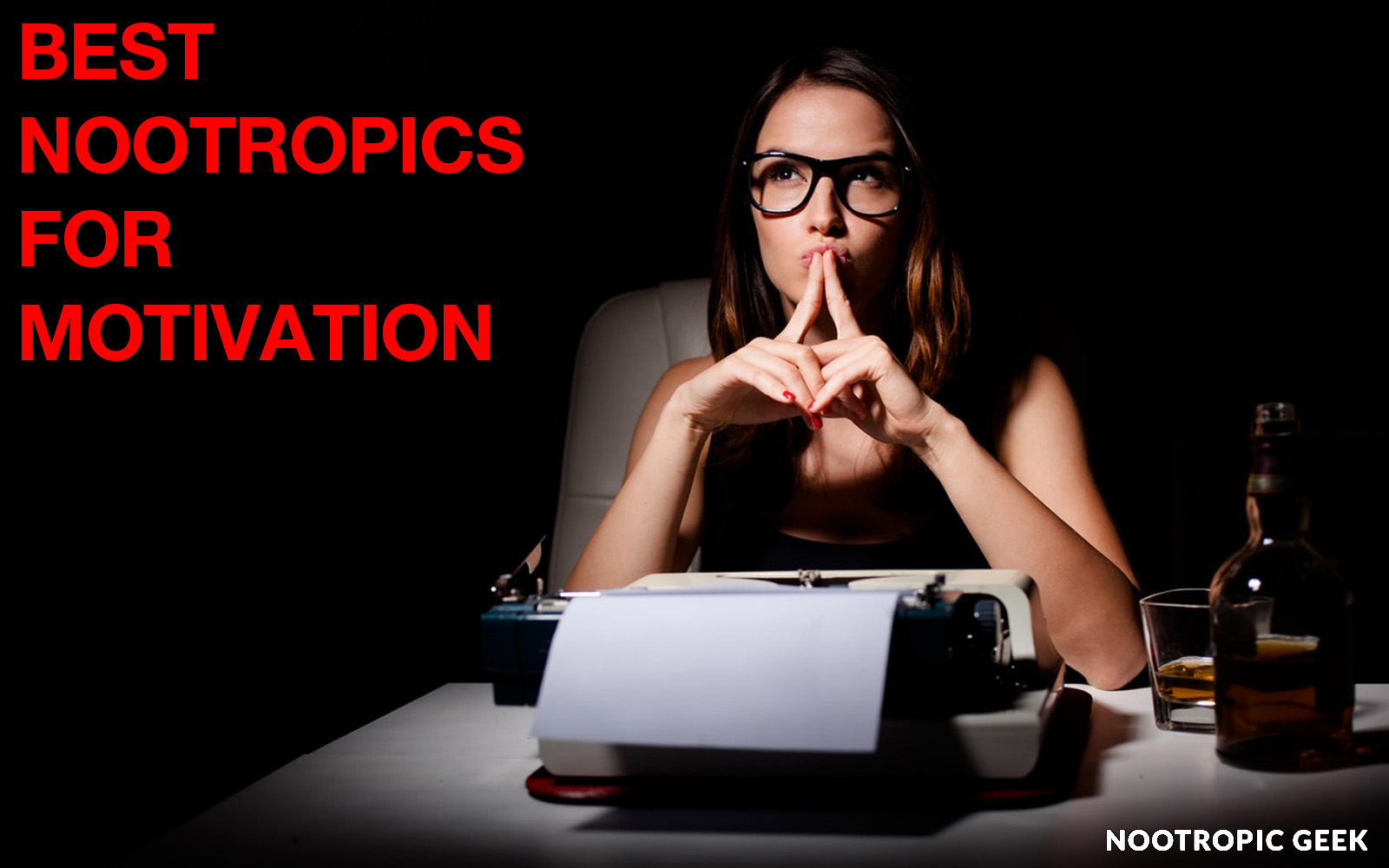
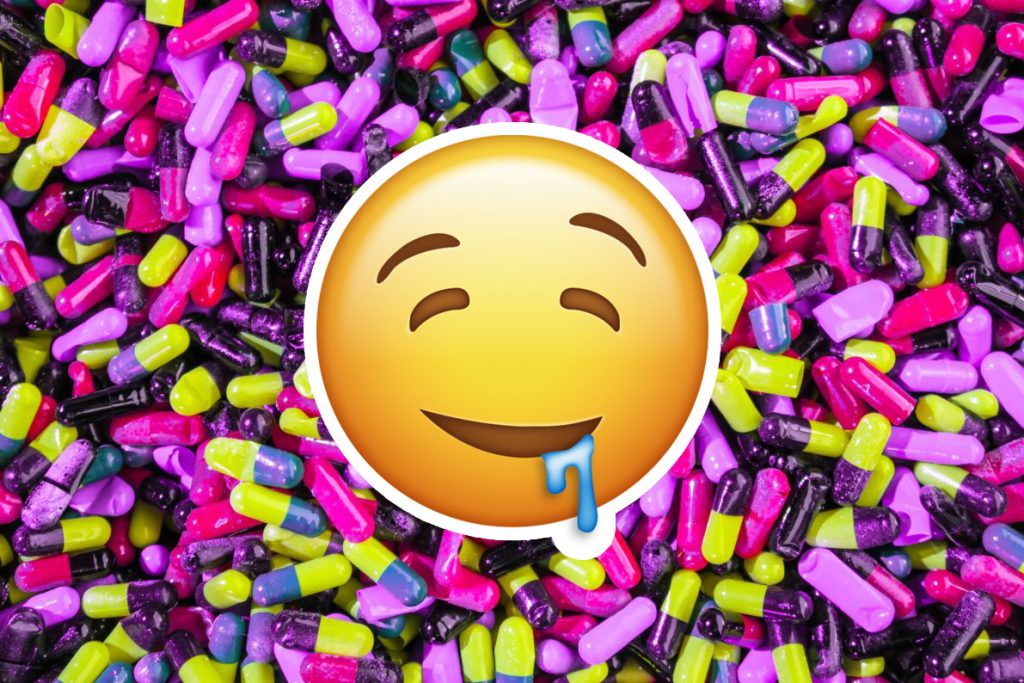
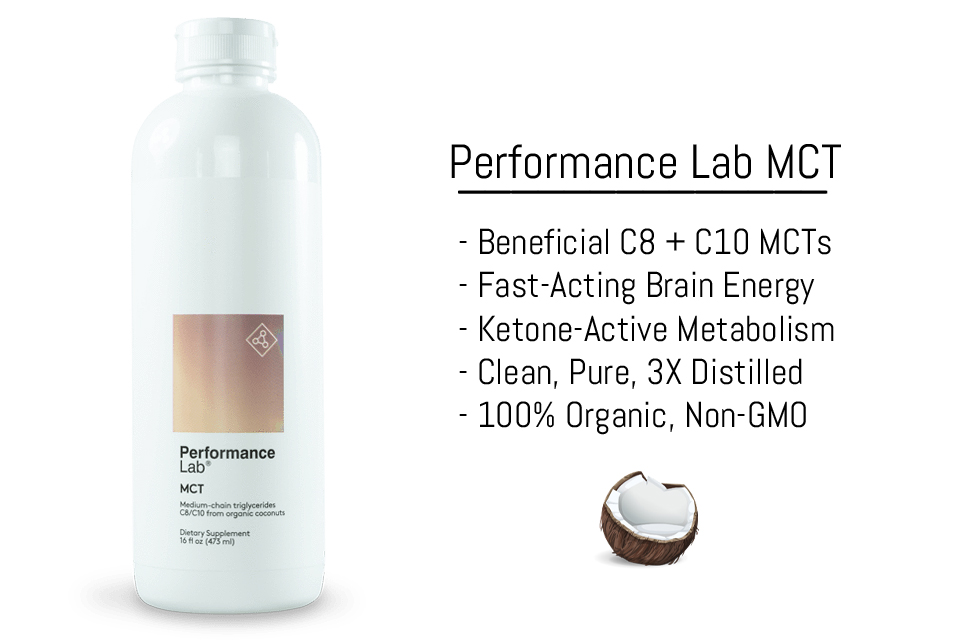
Hey I’m Lauren Winstead. I truly enjoyed your blog and found it very enthralling . I went and bought a couple of things off Amazon, but was super entertained from reading this. Could you possibly do some on immunity , aging , and weight?
Hi Lauren,
Appreciate the read and feedback — and absolutely! I began this blog hyperfocused on the brain, but I’m more and more interested in the connections between different body/health systems than those systems individually. It’s not like the brain’s operating in a vacuum, after all — so, I can definitely do more writing on immunity, aging, and weight.
Thanks for the Q.,
Geek